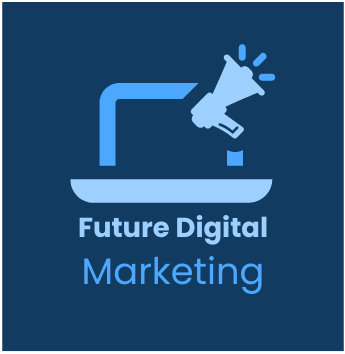Is AI the Future of Digital Marketing? Exploring the Evolution and Impact
In today’s fast-paced digital landscape, the marriage of technology and marketing has given birth to a powerhouse: Artificial Intelligence (AI). This transformative force is revolutionizing how businesses connect with their audiences, make data-driven decisions, and streamline processes. In this blog, we delve into the realm of AI in digital marketing, exploring its potential to reshape digital strategies and redefine success.
The Rise of AI in Digital Marketing
Artificial Intelligence, once a buzzword, is now an integral part of our lives, permeating industries across the board. In digital marketing, AI is the driving force behind personalized user experiences, predictive analytics, and automated campaigns. The ability to analyze vast amounts of data in real time and extract actionable insights gives marketers a competitive edge, allowing them to tailor messages to individual preferences and behaviors.
Personalization at Scale
Gone are the days of generic marketing messages. AI-powered personalization takes center stage, enabling businesses to deliver relevant content, recommendations, and offers to each user. By analyzing user behavior, AI algorithms can anticipate needs, leading to higher engagement rates and conversions. Whether it’s suggesting products, curating content, or optimizing email campaigns, AI-driven personalization creates a sense of connection that resonates with consumers.
Predictive Analytics and Enhanced Decision Making
AI’s prowess in predictive analytics empowers marketers to foresee trends and outcomes with remarkable accuracy. By analyzing historical data, AI algorithms can identify patterns, preferences, and potential bottlenecks, allowing marketers to make informed decisions. This foresight transforms marketing strategies from reactive to proactive, ensuring resources are allocated where they matter most.
Chatbots and Customer Engagement
Chatbots, powered by AI, have become essential tools in enhancing customer engagement. They offer instant responses, 24/7 availability, and the ability to handle routine inquiries. As AI continues to evolve, chatbots are becoming more sophisticated, providing personalized interactions that mimic human conversations. This not only improves customer satisfaction but also frees up human resources for more complex tasks.
Automated Campaigns and Efficiency
AI automates repetitive tasks, liberating marketers to focus on creative and strategic initiatives. Automated campaigns use AI to segment audiences, personalize content, and optimize delivery times. This efficiency ensures that messages reach the right people at the right moment, maximizing impact. Moreover, AI’s continuous learning improves over time, refining strategies for even better results.
Ethical Considerations and Human Oversight
While AI holds immense potential, ethical considerations are paramount. As algorithms make decisions based on data, biases can inadvertently be perpetuated. Maintaining human oversight is crucial to ensure AI remains a tool for positive change rather than a source of unintended harm. Transparency, fairness, and accountability must guide the integration of AI into future digital marketing strategies.
Conclusion
The future of digital marketing undoubtedly embraces AI as a transformative force. Its ability to personalize experiences, predict trends, engage customers, and enhance efficiency makes it an invaluable asset to any marketing strategy. However, as AI takes the reins, it’s imperative that human ingenuity and ethical considerations remain at the forefront. With the right balance, AI can usher in a new era of marketing that is not only data-driven but also deeply human-centric. As we navigate this evolving landscape, it’s clear that AI is not just the future—it’s the present of digital marketing.


Pingback: How Omni-Channel Marketing Strategies Improves Your Marketing Journey? | Future Digital Marketing